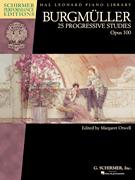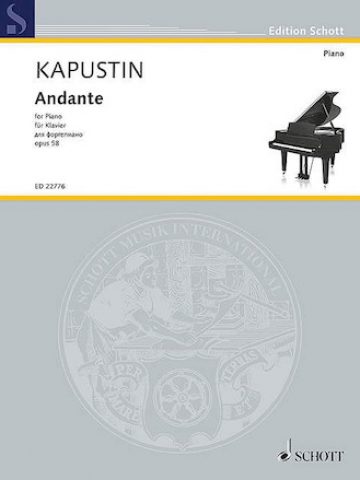Description
Pedagogical in nature, these editions offer insightful interpretive suggestions, pertinent fingering, and historical and stylistic commentary. Johann Friedrich Burgm¨ller (1806-1874) was born into a German musical family; both his father and brother were also well-known composers. Settling in Paris after 1832, his light and intimate playing style won popularity in the salons of the day. Originally titled 25 Études faciles et progressives, composées et doigtées expressément pour l'entendue des petites mains, his Opus 100 pieces are perennial favorites among piano students and their teachers.
Contents:
• Arabesque, Op. 100, No. 2
• Ave Maria, Op. 100, No. 19
• Ballade, Op. 100, No. 15
• Barcarolle, Op. 100, No. 22
• The Chase, Op. 100, No. 9
• The CHatterbox, Op. 100, No. 17
• Consolation, Op. 100, No 13
• The Farewell, Op. 100, No. 12
• Grace (La Gracieuse), Op. 100, No. 8
• Harmony of the Angels, Op. 100, No. 21
• Innocence, Op. 100, No. 5
• Inquietude, Op. 100, No. 18
• La Styrienne, Op. 100, No. 14
• The Limpid Stream, Op. 100, No. 7
• The Little Party “La Petite Reunion,” Op. 100, No. 4
• Pastorale, Op. 100, No. 23
• Progress (Progres), Op. 100, No. 6
• The Return, Op. 100, No. 23
• Sincerity (La Candeur), Op. 100, No. 1
• Spirit of Chivalry (La Chevaleresque), Op. 100, No. 2
• The Swallow, Op. 100, No. 24
• Tarantella, Op. 100, No. 20
• Tender Blossom (Tender Fleur), Op. 100, No. 10
• Tender Grieving, Op. 100, No. 16
• The Wagtail (La Bergeronnette), Op. 100, No. 11





Reviews
There are no reviews yet.